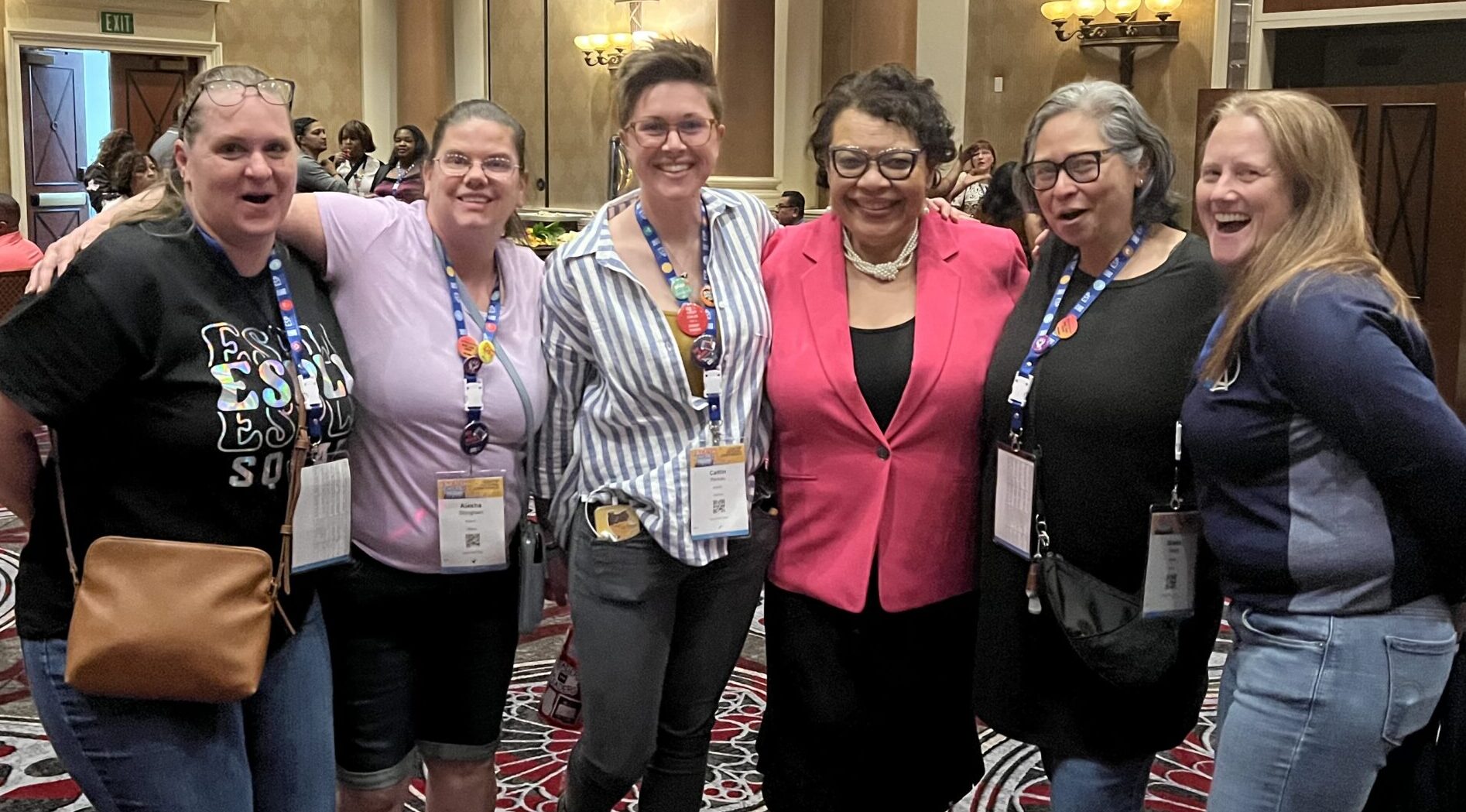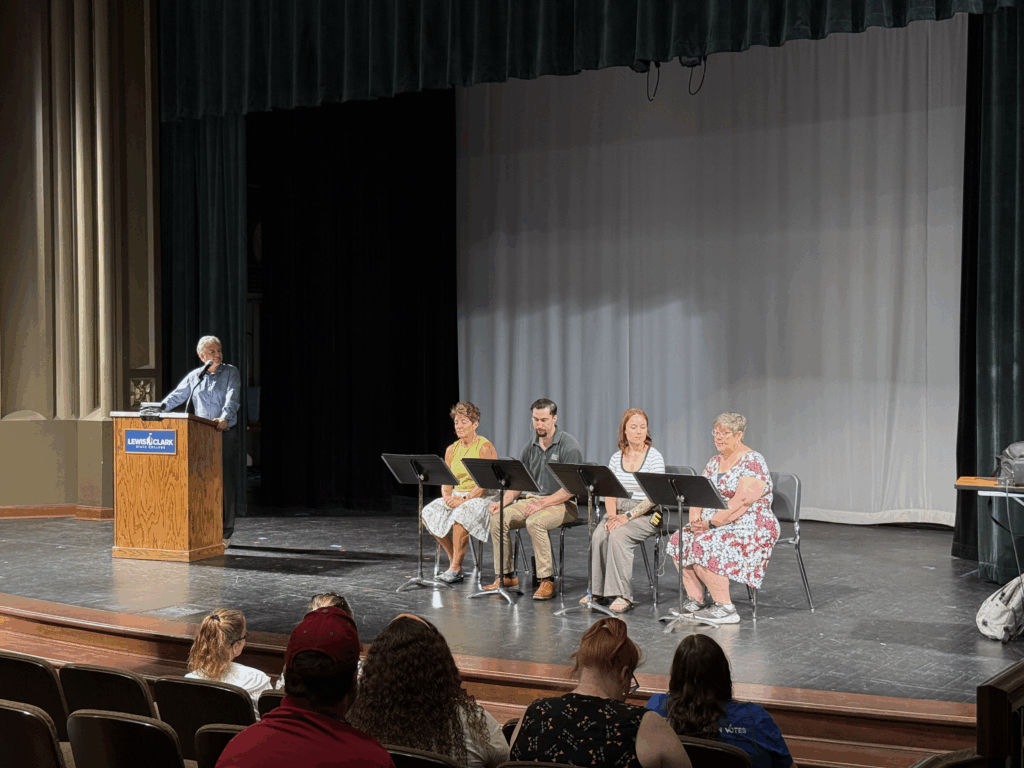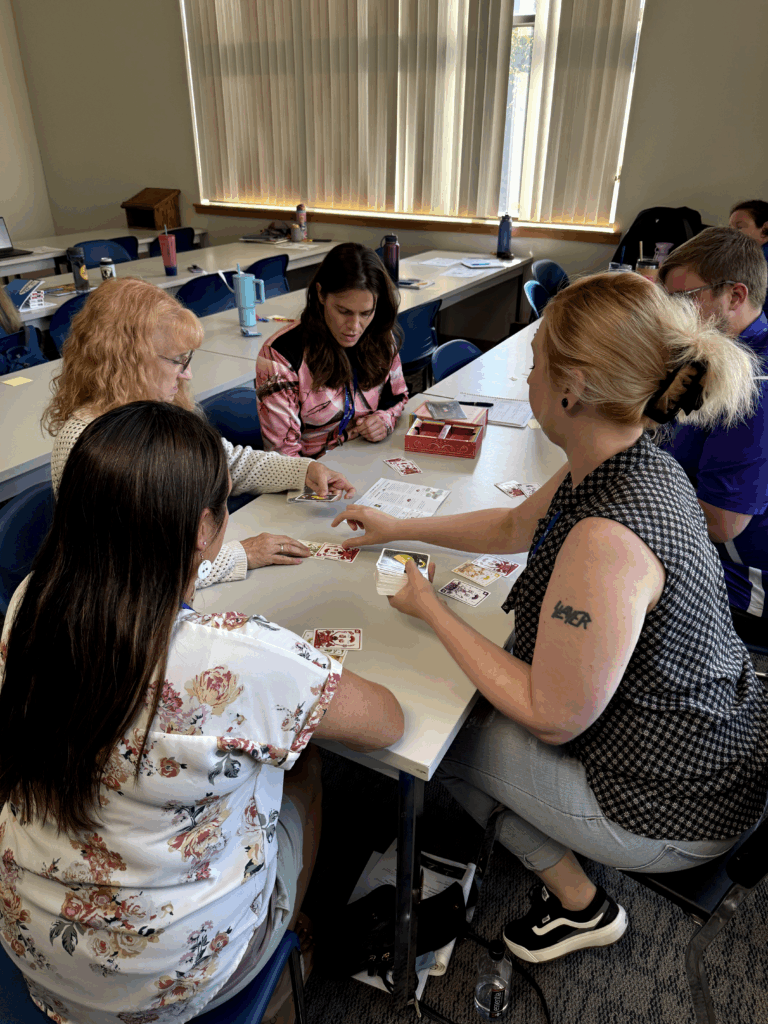Idaho’s delegation to last week’s NEA ESP National Conference pose with NEA Vice President Princess Moss at Caesar’s Palace in Las Vegas. L to R: LiseAnn Mills, Alesha Stringham, Caitlin Pankau, Moss, Janette Duarte and Mietta Sibert.
Creating connections with colleagues is one of the most powerful benefits of being a member of the Idaho Education Association.
This is especially true for an essential, yet often overlooked, segment of school employees that keep our schools running and our students safe, healthy, and ready to learn every day — our education support professionals or ESPs.
Last week, a select handful of IEA members felt the collective power of their union and their fellow ESPs at the National Education Association’s annual ESP National Conference in Las Vegas. Billed as a way to “grow and strengthen the professional excellence of ESP members,” the three-day convening of ESPs from all over the nation made quite the impression on Idaho’s delegation.
“The camaraderie, the shared knowledge, and the collective enthusiasm from this year’s conference have indeed laid the groundwork for a stronger, more proactive, and empowered community of ESPs,” said Mietta Sibert, who wears many hats as an ESP at Syringa Middle School in Caldwell. “The experience has armed me with invaluable insights and skills to not only better my professional life but also to contribute meaningfully to our educational community.”
The Backbone of Our Public Schools
Few educators disagree that ESPs and classified school district employees are the backbone of every public school in the state. Their dedication to the total student learning experience is seen every day in noisy buses, bright hallways, busy classrooms, welcoming school offices and bustling cafeterias. These educators include paraprofessionals, administrative assistants, custodians, bus drivers, security and technology staff, food service workers and other school employees vital to student and school success.
Sibert and her colleagues at the conference soaked-in workshops, sessions and networking opportunities. They learned leadership skills and boosted their knowledge as student advocates and educators. They deepened their commitment as champions of racial and social justice and builders of community relationships. And they studied how to strengthen and grow their union local by building membership and engagement.
“I loved watching my colleagues network, grow and become better leaders for not only their locals but for the association as a whole,” said LiseAnn Mills, a behavioral health paraprofessional at Mountain Home High School. Mills also serves on IEA’s Board of Directors representing ESPs statewide. “Seeing that fire spark in them was what made this conference great.”
Camaraderie and Comparing Notes
The conference was invigorating for a group of education professionals who face pressures similar to Idaho’s certified educators. Escalating student behavioral challenges, increasing responsibilities, a general lack of respect for their importance and rising costs of living — ESPs are being asked to do more, often without the resources they need and the compensation they deserve. Just as with certified educators, low pay, workload, morale and stress issues cause burnout and resignations. And when ESPs leave a school, certified educators are often asked to step into their essential roles — often devouring precious classroom instruction time.
Getting together with their colleagues from around the country allowed Idaho’s conference contingent to compare notes, and learn each other’s passions, frustrations and solutions. Janette Duarte, an ESP member who works at Linden Park Elementary School in Idaho Falls, loved the camaraderie and left Las Vegas with zeal for the work of her union.
“What I liked most about the conference was the opportunity to interact with education support professionals from other states. Hearing ideas and solutions from them was a great benefit,” Duarte said. “Attending the NEA ESP Conference has reignited my passion for my association.”
Sibert zeroed in on crisis preparedness, emergency response, advocacy and labor negotiations at the conference. It left her with a commitment to pass it on to other IEA members.
“We must continue to send dedicated ESPs to such enriching experiences,” she said. “Identifying those among us with untapped leadership potential is essential, and I strongly advocate for more of our peers to be encouraged and trained up, to become the great leaders of tomorrow.”
Learn about being more engaged as an ESP member of the IEA by emailing cpankau@idahoea.org.




